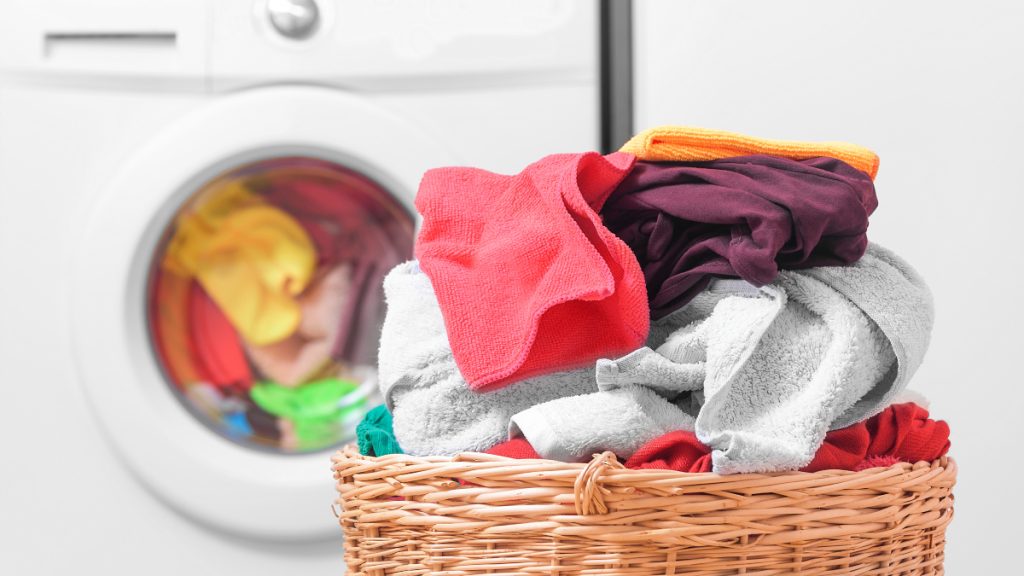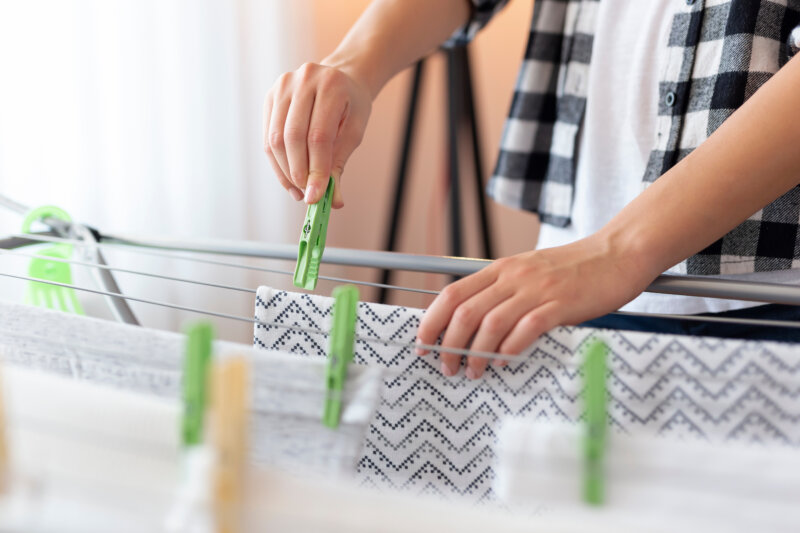The products and services mentioned below were selected independent of sales and advertising. However, Don't Waste Your Money may receive a small commission from the purchase of any products or services through an affiliate link to the retailer's website.
Laundry is one of those chores that is so routine, we might be on autopilot when going through the process every time. Load in the clothes, add detergent and fabric softener, and start the wash cycle.
You could do it in your sleep (and some people probably have), but it might be worth pausing to reexamine the fabric softener part of the process of doing your laundry. Because while detergent is important for actually cleaning and sanitizing clothes, is fabric softener really necessary?
The short answer is no, fabric softener is not a necessary component of washing your clothes. It’s an additional substance with lubricating ingredients that help coat and soften fabric fibers and reduce static cling.
However, there are downsides to using fabric softener, too. Check out the pros and cons of fabric softener before continuing to add it to your laundry.
What Are the Benefits of Using Fabric Softener?
Liquid fabric softener can be effective at softening clothes and neutralizing the charge that causes static cling. Many fabric softeners also include fragrances that mask odors and leave clothes smelling fresh.
Dryer sheets are also fabric softeners, as they are coated with chemicals that melt at high temperatures and have the same softening and static-reducing effect as liquid softeners.

The Downsides of Using Fabric Softener
While fabric softener can be beneficial in the near-term, the harmful effects of using this stuff should not be overlooked.
Chemicals and allergens: Those with sensitive skin or asthma will want to avoid fabric softeners, as they often contain known allergens. According to the Environmental Working Group, ingredients such as “colorants,” “preservatives” or “fragrances” can refer to a wide variety of chemicals, some of which cause skin irritation and respiratory problems.
Residue: Fabric softeners leave a residue on fabrics — especially on fleece and flannel. This same residue can also build up inside the washing machine and lead to mold. The chemicals on dryer sheets also leave a residue on clothing.

Increased flammability: One thing you don’t want to do to clothes is make them more flammable, but fabric softeners do just that. Studies have found that fabric softener reduces a fabric’s flame resistance, which is particularly dangerous in children’s sleepwear.
Fabric deterioration: Even if you want to stick with fabric softener, avoid using it on moisture-wicking fabrics, such as workout clothes. The waxy coating that softeners leave on clothes can build up to the point where detergent and water can’t even get into the fabric to remove stains and odors. And while fabric softener may leave your towels feeling plush in the short-term, over time, the softening agents will actually reduce the absorbency of towels, especially those made of terry cloth or microfiber.
Stains: There’s a reason why most washing machines have a compartment for adding fabric softener so that it will be gradually dispensed into the machine and diluted by the water during the wash cycle. Pouring liquid fabric softener directly onto clothes can stain them.

MORE: For cleaner, easier laundry, skip these mistakes
Alternatives to Fabric Softener
The cleanest and safest alternative to using fabric softener is air-drying your clothes on a clothesline or drying rack. This option eliminates static cling and protects your clothes from being damaged by the intense heat of the dryer. It also uses less energy, which is a win for both your energy bill and the environment.
You can also head to the kitchen pantry for laundry help. Adding distilled white vinegar to the washing machine will strip out residue, eliminate odor and improve a fabric’s softness and absorbency.
Finally, wool dryer balls are a great, eco-friendly alternative to fabric softener. These reusable balls of New Zealand sheep’s wool go into the dryer with your wet clothes and aim to reduce static and leave clothes soft and unwrinkled. Best of all, they’re all-natural and free of chemicals and allergens.
Are you a fabric softener fan?
Kate Emswiler contributed to this report.
This story originally appeared on Don't Waste Your Money.


